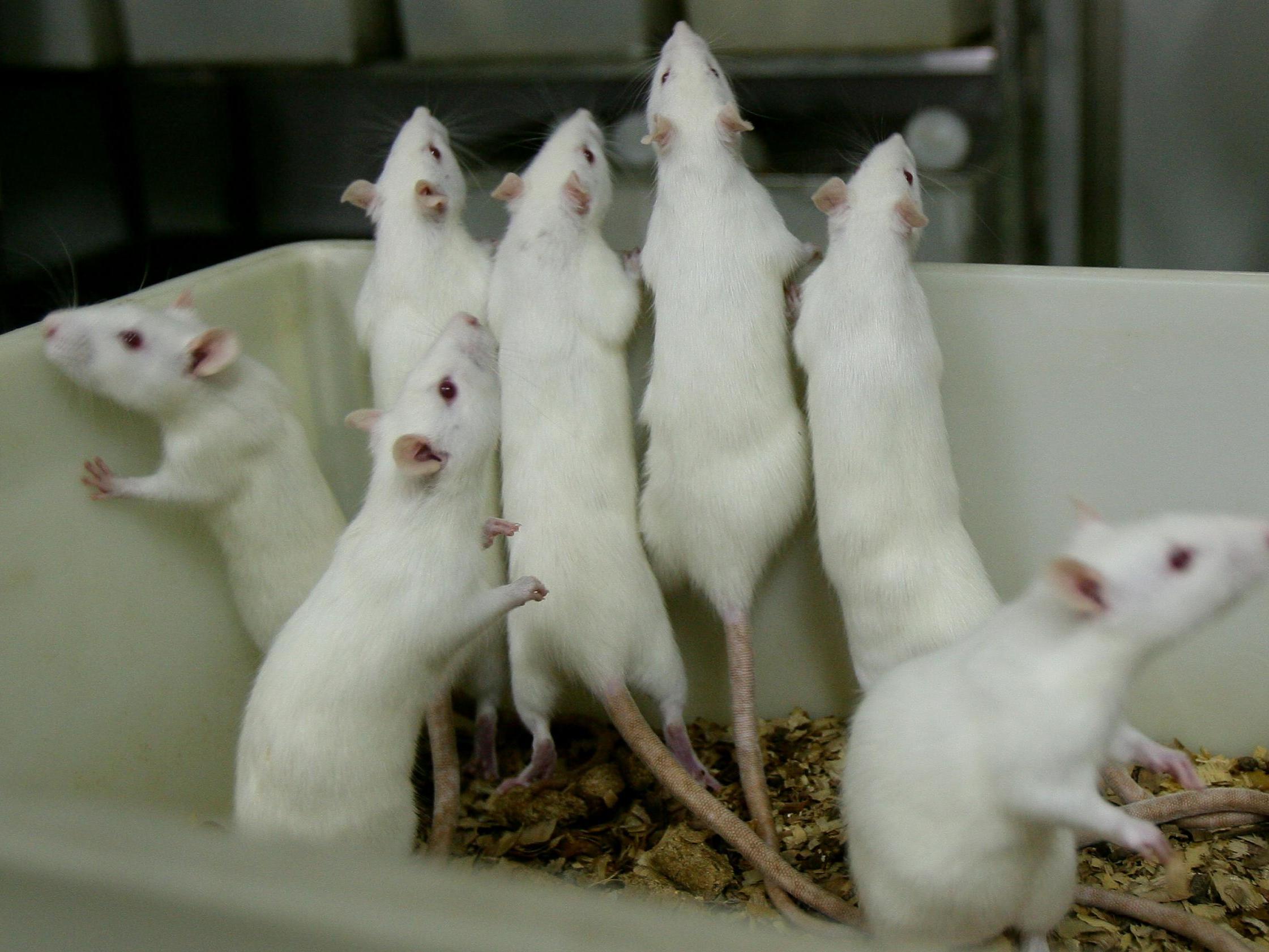Scientific testing procedures on animals fall to lowest level since 2007
Significant fall in use of primates and dogs over last decade, statistics show

Scientific testing on animals has fallen to its lowest level in England, Scotland and Wales since 2007, official figures show.
Data from the Home Office reveals that 3.4 million scientific testing procedures were carried out on live animals in Britain last year, a fall of 3 per cent from 2018.
The majority (93 per cent) used mice, fish or rats, which have been the most used for the past decade.
Professor Dominic Wells, chair of the Animal Science Group at the Royal Society of Biology, told The Independent: “The decrease in numbers is important, but with the caveat that we don’t know if that’s because people are finding alternatives to animals or because there’s reduced funding for animal research.
“It’s important to flag up that whilst some animals undergo severe procedures, and we’d like to reduce that as much as possible, the vast majority actually undergo very little suffering at all.
“Actually, 81.5 per cent of animals suffer less than or equal to mild suffering – the equivalent of having a blood sample taken or having something injected, the kind of thing that you would not consider significant suffering if the doctor said you needed a shot of penicillin or something.”
The report said the number of procedures does not equal the number of animals involved as some may be used more than once.
Over half (57 per cent) of experimental procedures were carried out for basic research, mostly focusing on the immune system, the nervous system and cancer.
“Specially protected species”, such as cats, dogs, horses and primates, which are subject to additional protection under Section 5C of the Animals (Scientific Procedures) Act 1986, were used in 1 per cent (18,000) of experimental procedures.
There was a significant decrease in the use of primates (39 per cent) and dogs (27 per cent) over the last 10 years, the report said.
The use of cats fell by 18 per cent in the last year and 30 per cent compared to a decade ago.
However, the charity Humane Society International argued Britain must do more to move away from “outdated animal use”.
Dr Lindsay Marshall, HSI UK’s biomedical science adviser, said: “The UK cannot expect to have world-leading science innovation whilst we rely on failing animal-based research methods that are rooted in the past.
“In drug discovery, pharmaceutical safety, chemical testing, cancer research, the data shows that animal models are really bad at telling us what will happen in a human body.
“As well as sometimes being dangerously misleading, animal approaches typically take a very long time to produce results, sometimes years, are very expensive, and of course cause enormous animal suffering.
“As the UK leaves the EU and competes with countries like the USA that are taking bold strides towards animal-free science, we urge the government to radically update its 2010 research policy to focus on replacing animal procedures in science. Incentivising researchers to adopt new approaches is as easy as redirecting public research funding towards cutting-edge non-animal techniques based on human biology.”
The Home Office report also recorded the amount of suffering testing caused to the animals, with 91 per cent of all experimental procedures and 98 per cent of all breeding procedures last year being assessed as sub-threshold (less than the level of pain, suffering, distress or lasting harm caused by inserting a hypodermic needle), mild (slight or transitory pain) or moderate (not life threatening, such as surgery carried out with anaesthesia and post-operative analgesia), while the remainder were severe or non-recovery (the animal did not wake up after anaesthesia).
It comes as Understanding Animal Research, which promotes the sharing of research about animal testing, revealed the 10 organisations which account for nearly half of all animal research in Britain.
The institutions were the Francis Crick Institute (258,557), Medical Research Council (241,577), University of Oxford (229,163), University of Edinburgh (198,517), University College London (186,424), King’s College London (131,999), University of Glasgow (118,139), University of Cambridge (114,640), University of Manchester (97,506) and Imperial College London (80,799).
The effect of the coronavirus pandemic on animal testing remains to be seen, with little to no research being carried out at the majority UK universities over the lockdown period.
However, animals are set to play a key role in tests on potential vaccines and treatments for Covid-19.
Prof Wells said: “For the last four months, essentially almost no research has been carried out in the majority of universities simply because we’ve been quarantining at home and then many institutions have been reluctant to open their doors because they’re wanting to minimise the risk of spread.
“There will be some increased animal use, specifically for Covid-19, but I think that’s going to be massively overbalanced by the reduced animal work due to the lockdown.”
Wendy Jarrett, chief executive of Understanding Animal Research said: ”Animal research is essential for the development of new drugs and vaccines for diseases like cancer, dementia, and Covid-19.
“Existing drugs, developed using animals, have also been found to be effective against the virus: Remdesivir, an anti-viral drug that was initially developed using monkeys to treat Ebola, is being used to treat severe cases of Covid-19, and dexamethasone, a steroid originally developed using animal research to treat rheumatoid arthritis, has been found to save the lives of some patients on ventilators.
“Research involving commonly used animals like rodents, and more unusual animals like llamas, alpacas, bats, and hamsters has also yielded important information on how Covid-19 can be treated.”
Join our commenting forum
Join thought-provoking conversations, follow other Independent readers and see their replies
Comments